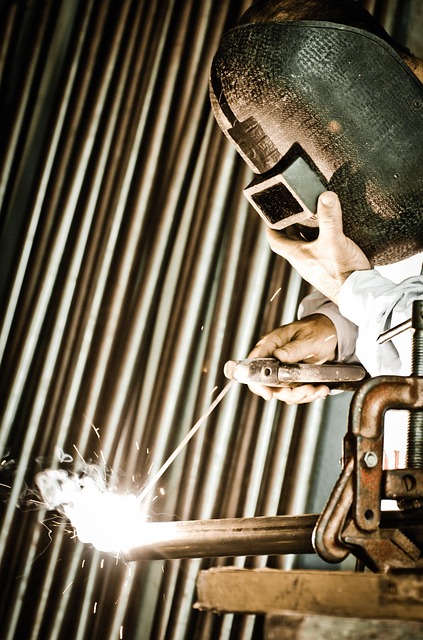Professional Welding Programs: Certifications and Pathways
Welding training equips individuals with the technical skills needed to join metals through various processes, opening doors to diverse career opportunities in construction, manufacturing, and energy sectors. Whether you're considering a career change or seeking to enhance your skillset, understanding the types of welding courses available, certification requirements, and training pathways can help you make informed decisions about your professional future.

The welding industry continues to expand across multiple sectors, creating demand for skilled professionals who can meet rigorous safety and quality standards. Professional welding programs serve as the foundation for entering this field, offering comprehensive training that covers various welding techniques, safety protocols, and industry-specific applications.
Understanding Welding Courses and Training Programs
Welding courses encompass multiple disciplines including stick welding (SMAW), gas metal arc welding (GMAW), and tungsten inert gas welding (TIG). Training programs typically combine theoretical knowledge with extensive practical experience. Students learn metallurgy basics, blueprint reading, and safety procedures while developing proficiency with welding equipment. Most programs range from several weeks to two years, depending on the certification level and specialization area.
Welding Courses USA: Regional Training Options
Across the United States, welding education varies by region to meet local industry demands. Community colleges, trade schools, and technical institutes offer programs tailored to regional needs. Southern states often emphasize pipeline and petrochemical welding, while coastal areas focus on shipbuilding and marine applications. Midwest programs frequently highlight manufacturing and automotive welding techniques. Many institutions partner with local employers to provide apprenticeship opportunities and job placement assistance.
Welding Training Pathways and Certification Requirements
Certification pathways follow established industry standards set by organizations like the American Welding Society (AWS) and American Society of Mechanical Engineers (ASME). Entry-level certifications include basic position welding tests, while advanced certifications cover specialized techniques and materials. Students typically progress through multiple certification levels, starting with fundamental processes and advancing to complex applications. Each certification requires passing both written examinations and practical welding tests under supervised conditions.
Welding Courses UK: International Training Standards
International welding standards provide global mobility for certified welders. UK welding courses follow European Welding Federation guidelines, emphasizing quality assurance and safety protocols. These programs often include modules on international codes and standards, preparing graduates for work across different countries. Cross-recognition agreements between certification bodies allow welders to transfer credentials between regions, expanding career opportunities in the global marketplace.
Welding Courses US: Cost Considerations and Program Comparisons
Welding program costs vary significantly based on duration, location, and certification level. Community college programs typically offer the most affordable option, while private technical schools may provide accelerated training at higher costs. Financial aid options include federal grants, scholarships, and employer-sponsored training programs.
| Program Type | Provider Example | Duration | Cost Estimation |
|---|---|---|---|
| Community College | Houston Community College | 12-24 months | $3,000-$8,000 |
| Technical Institute | Lincoln Tech | 6-15 months | $15,000-$25,000 |
| Trade School | Tulsa Welding School | 7 months | $18,000-$20,000 |
| Apprenticeship | Local Union Programs | 3-4 years | Paid training |
Prices, rates, or cost estimates mentioned in this article are based on the latest available information but may change over time. Independent research is advised before making financial decisions.
Many programs offer flexible scheduling options including evening and weekend classes to accommodate working students. Equipment costs, certification fees, and materials add to the total program expense. Students should factor in these additional costs when comparing program options.
Career Advancement and Specialization Opportunities
Professional welding programs open pathways to specialized fields including underwater welding, aerospace applications, and nuclear facility work. Advanced certifications enable welders to pursue supervisory roles, quality control positions, or welding inspection careers. Many professionals continue education through manufacturer-specific training programs and advanced certification courses. The combination of technical skills and industry certifications creates opportunities for career advancement and increased earning potential across diverse industries.




